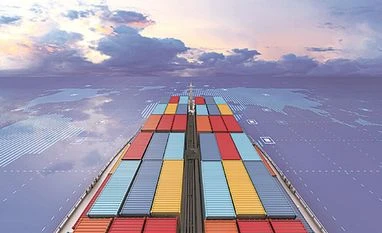India, along with 13 other nations under the US-initiated Indo-Pacific Economic Framework (IPEF), is likely to substantially close discussions on two more pillars – clean and fair economy – during the upcoming ministerial slated to take place in San Francisco next week.
With this, the negotiations related to three out of IPEF’s four pillars will be completed within a year-and-a-half since the launch of the economic initiative. Already, the legal scrubbing process of the second pillar – the supply chain resilience agreement – has now been completed.
IPEF is a 14-member grouping launched by US President Joe Biden last year with an aim to enhance the economic competitiveness and prosperity among the member countries. The framework is structured around four pillars relating to trade, supply chain resilience, clean economy, and fair economy.
According to government officials, the process for domestic approval for signing the supply chain resilience agreement is underway.
There has also been substantial progress in Pillar I or the trade pillar, although it might take some more time to conclude negotiations since it is the most exhaustive out of the four pillars, they said.
For the time being, India has opted out of the trade pillar and has an ‘observer’ status. This means that India will have the flexibility of joining the pillar after seeing the final text once the negotiations are over.
“In under a year and a half, the Biden Administration established and built out a framework of 14 partner nations in the Indo-Pacific to address long-term economic issues and allow the United States and our partners to nimbly respond and keep pace with new challenges and opportunities that arise – whether that’s mitigating the impact of a global pandemic on our supply chains or seizing new investment opportunities,” US Secretary of Commerce Gina Raimondo said in a statement on Monday.
The ministerial will be preceded by a week-long seventh in-person negotiating round that started on Sunday. The second in-person ministerial is crucial for India, considering that it has not been able to sign any trade agreements this year so far.
While the deal with Canada is off the table due to political tensions, negotiations with the United Kingdom are on as both sides are yet not able to sort out the differences in key areas.
The plurilateral economic cooperation arrangement is also of strategic importance for the US and India as it is also seen as an initiative to counter China’s influence on the South and Southeast Asian nations and draw more investments among the 14 nations through cooperation.
Experts believe that although there might be larger strategic gains for India, IPEF may not yield immediate benefits for the country.
“If you look at the supply chain pillar, there is deep significance on labour and environment standards and India is not prepared to face compliance. The concern is the standards are demanding and it is difficult to meet the standards,” said Biswajit Dhar, distinguished professor at the Council for Social Development.
“I don’t see us getting immediate benefits out of it unless we get domestic processes going and invest in product quality and standards,” Dhar said.
Apart from India and the US, the 12 other members of the IPEF are Australia, Brunei, Fiji, Indonesia, Japan, Korea, Malaysia, New Zealand, Philippines, Singapore, Thailand, and Vietnam.
IPEF hopes to create a more conducive environment to enhance trade and investment linkages, develop resilient supply chains, and push sustainable development.
Unlock 30+ premium stories daily hand-picked by our editors, across devices on browser and app.
Pick your 5 favourite companies, get a daily email with all news updates on them.
Full access to our intuitive epaper - clip, save, share articles from any device; newspaper archives from 2006.
Preferential invites to Business Standard events.
Curated newsletters on markets, personal finance, policy & politics, start-ups, technology, and more.
)